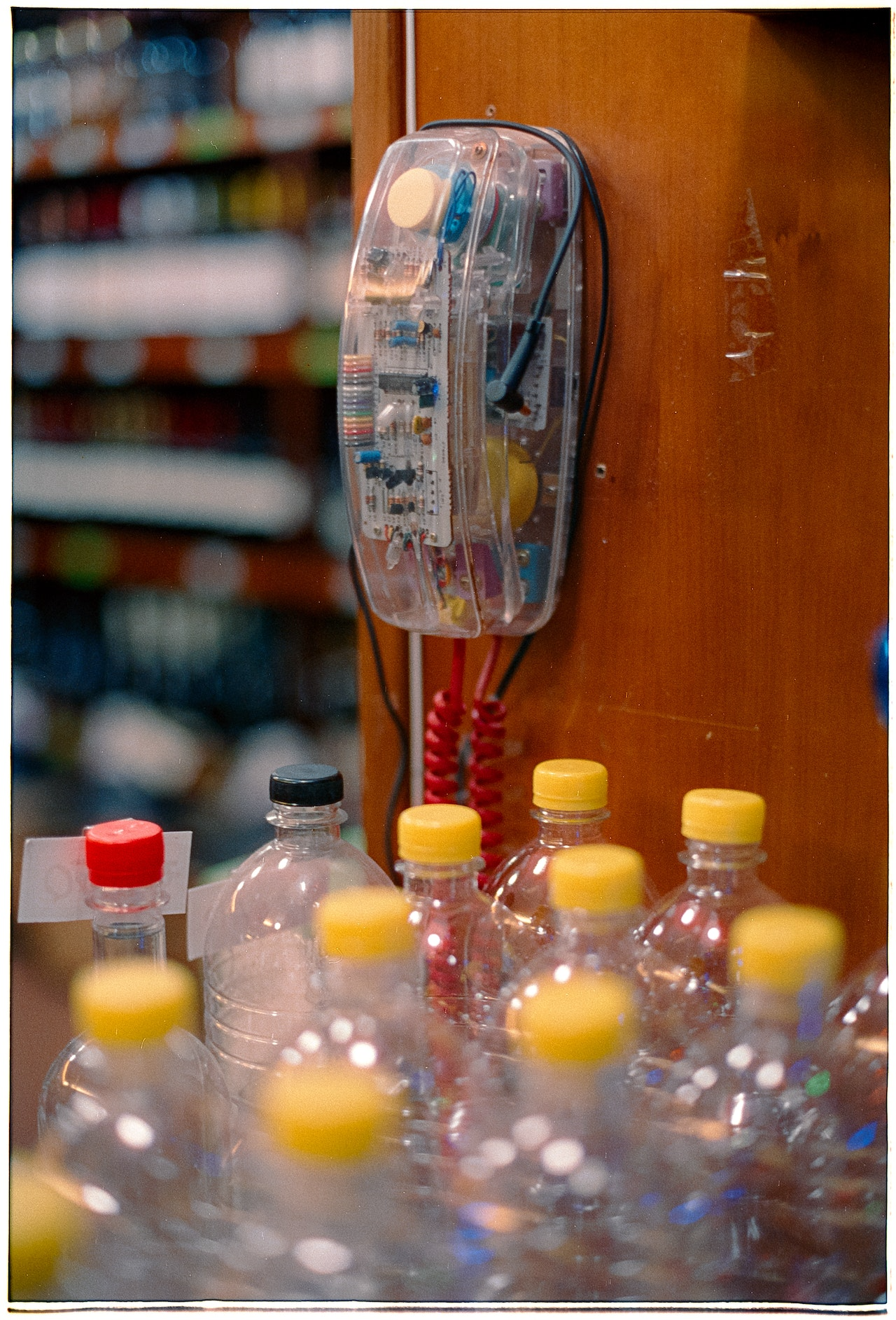How To Remove BPA From Water?

In today's modern world, concerns about water quality and potential contaminants have become increasingly important. One such contaminant is Bisphenol A (BPA), a chemical commonly found in plastic products. BPA has garnered significant attention due to its potential adverse health effects, particularly when it comes to drinking water. In this blog post, we will explore how BPA can find its way into your drinking water, the dangers associated with consuming water contaminated with BPA, and the efficacy of solid carbon block filters, such as those offered by Epic Water Filters, in removing BPA from your water.
BPA vs PET Plastic: Bisphenol A (BPA) is a chemical compound used in the production of certain plastics and resins. It can be found in a wide range of consumer products, including water bottles, food containers, and even the lining of canned foods. When these products are exposed to heat or acidic conditions, BPA can leach into the contents, including drinking water.
In our pursuit of convenience, the shift from BPA-laden plastic bottles to alternatives like PET (also known as Type #1 Plastic or Plastic #1, is polyethylene terephthalate or PET) may have seemed like a positive change. However, research suggests that PET may act as an endocrine disruptor, and phthalates can still seep into water from Type #1 PET plastic bottles, especially when exposed to heat or stored for long periods.

How BPA Gets into Your Body

How Does BPA Leach Out of Plastic:
- Plastic Bottles: When storing or transporting water in plastic bottles containing BPA, especially in warm environments, the chemical can migrate from the plastic into the water, leading to contamination. Pipes and Plumbing Systems: BPA can also enter drinking water as a result of leaching from pipes and plumbing systems that contain BPA-based materials. This is more common in older systems or those that were not designed with BPA-free materials.
-
Canned Food: Bisphenol A (BPA) can also find its way into our food through canned goods, including vegetables. Many canned food products, including vegetables, have a protective lining inside the cans to prevent corrosion and maintain product quality. Unfortunately, these linings often contain BPA. When the cans are filled and sealed, BPA can leach into the food over time. Acidic or fatty foods, such as tomatoes or canned meats, tend to promote greater leaching of BPA. This means that when we consume canned vegetables or other foods, we may unknowingly be exposed to BPA, which can have potential health risks. To minimize exposure, considering fresh or frozen alternatives, as well as opting for BPA-free canned goods when available, can be beneficial.
- Pipes and Plumbing Systems: BPA can also enter drinking water as a result of leaching from pipes and plumbing systems that contain BPA-based materials. This is more common in older systems or those that were not designed with BPA-free materials.
Exposure to BPA has been linked to numerous potential health risks. Although research is still ongoing, some studies suggest that long-term exposure to low levels of BPA may have negative effects on human health, including:
- Hormonal Disruption: BPA is known as an endocrine disruptor, which means it can mimic or interfere with hormones in the body. This disruption may lead to reproductive problems, hormonal imbalances, and even certain types of cancers.
- Developmental Issues: Pregnant women, infants, and young children are particularly vulnerable to the effects of BPA. It may interfere with normal development and cause behavioral changes, neurological disorders, and growth abnormalities.
- Increased Risk of Chronic Disease: Research has also suggested potential links between BPA exposure and an increased risk of obesity, diabetes, cardiovascular diseases, and other chronic health conditions.

Stronger filters remove bpa from tap water

Solid carbon block fiber filters, such as those offered by Epic Water Filters, have proven to be highly effective in removing a wide range of contaminants, including BPA, from drinking water. Here's how they work:
- Adsorption: The porous structure of carbon blocks enables them to attract and capture contaminants, including BPA molecules, through a process called adsorption. This means the contaminants adhere to the carbon surface.
- Natural and Physical Filtration: Solid carbon fiber blocks use a combination of natural and physical filtration mechanisms to remove impurities. This ensures that BPA, along with other potentially harmful substances, is effectively trapped within the filter media.
- Enhanced Filtration Efficiency: Solid carbon fiber block filters, like those used by Epic Water Filters, are designed with densely compacted carbon particles, which offer a larger surface area for adsorption. This allows for a higher filtration capacity and ensures the removal of even tiny BPA particles.
Advantages of Solid Carbon Fiber Block Filters:
Versatility: Carbon block filters are effective in removing a wide range of contaminants, not just BPA. They can eliminate chlorine, heavy metals, pesticides, pharmaceutical residues, and more.
Better Taste and Odor: In addition to removing contaminants, carbon block filters also enhance the taste and odor of drinking water by reducing the presence of organic compounds responsible for unpleasant smells or flavors.
Cost-Effective and Environmentally Friendly: Opting for a solid carbon block filter system is a cost-effective and sustainable solution compared to constantly purchasing bottled water. It helps reduce plastic waste and offers a long-lasting, reliable filtration option.
With the increasing concerns about water contamination, it is crucial to understand the potential risks associated with consuming water containing BPA while also pushing more studies on BPA's replacement Type #1 PET single use bottles. By using solid carbon fiber block filters like those provided by Epic Water Filters, you can effectively remove BPA and other harmful contaminants from your drinking water. Prioritizing water filtration not only ensures the health and well-being of yourself and your loved ones but also contributes to a sustainable and environmentally friendly lifestyle. Remember, clean and safe drinking water is a fundamental right, and investing in reliable filtration systems is a proactive step towards achieving it.

Sources:
Health risk of exposure to Bisphenol A (BPA)
An insight into bisphenol A, food exposure and its adverse effects on health: A review
Do prenatal exposures pose a real threat to ovarian function? Bisphenol A as a case study
Plastic (Not) Fantastic: Food Containers Leach a Potentially Harmful Chemical
OUR PRODUCTS





